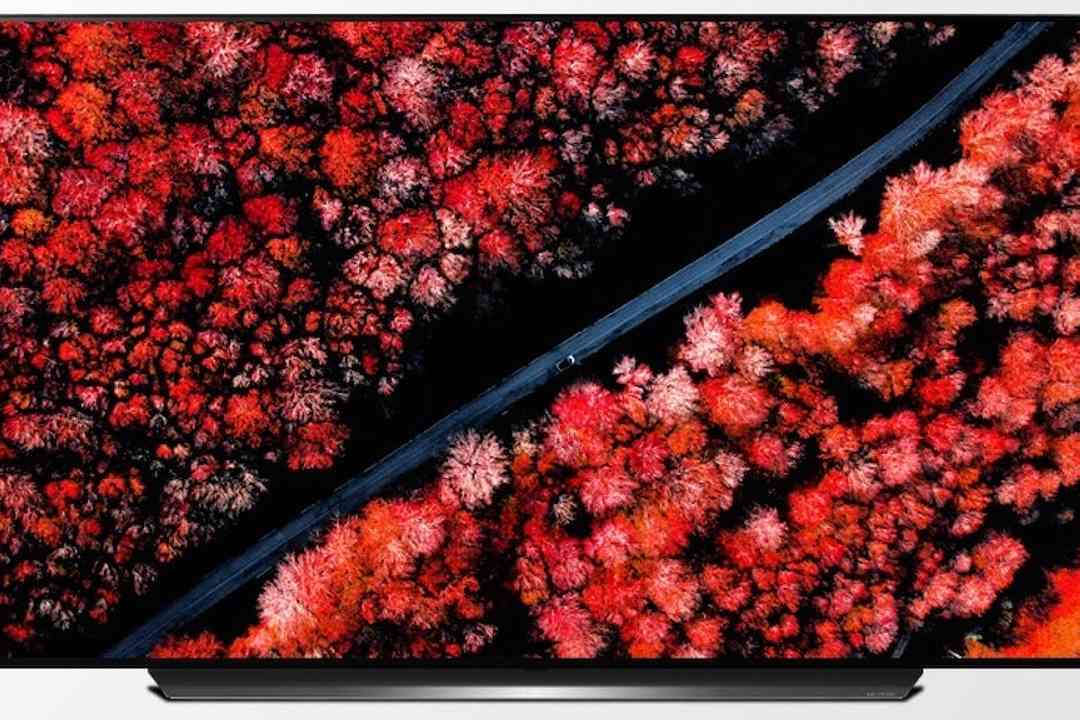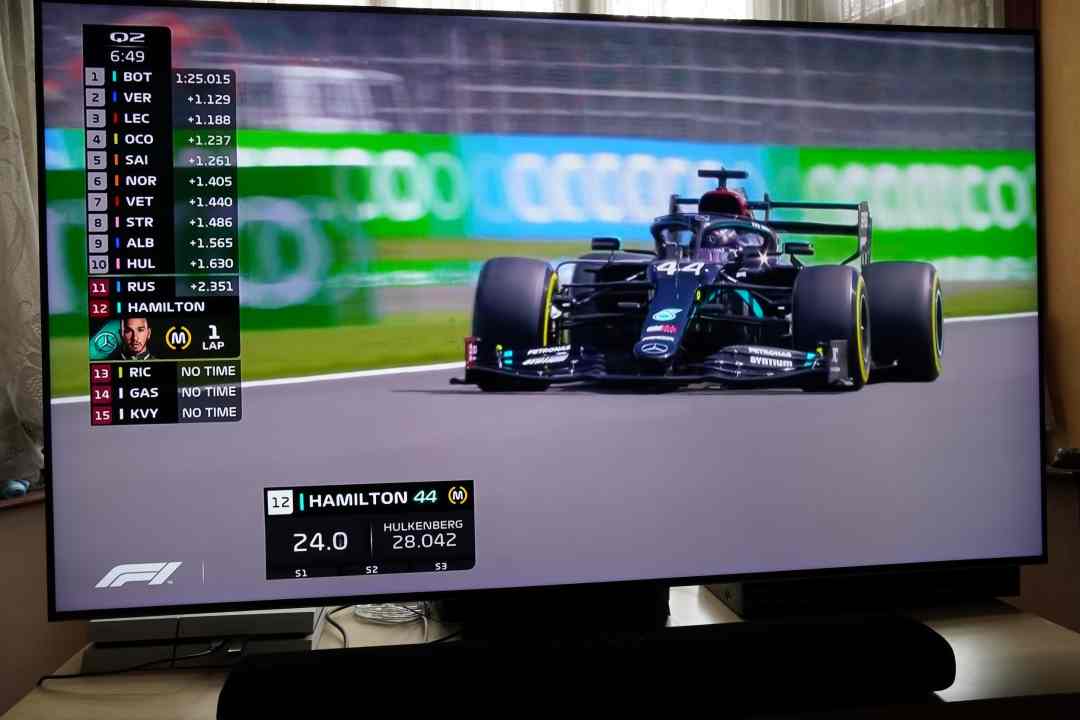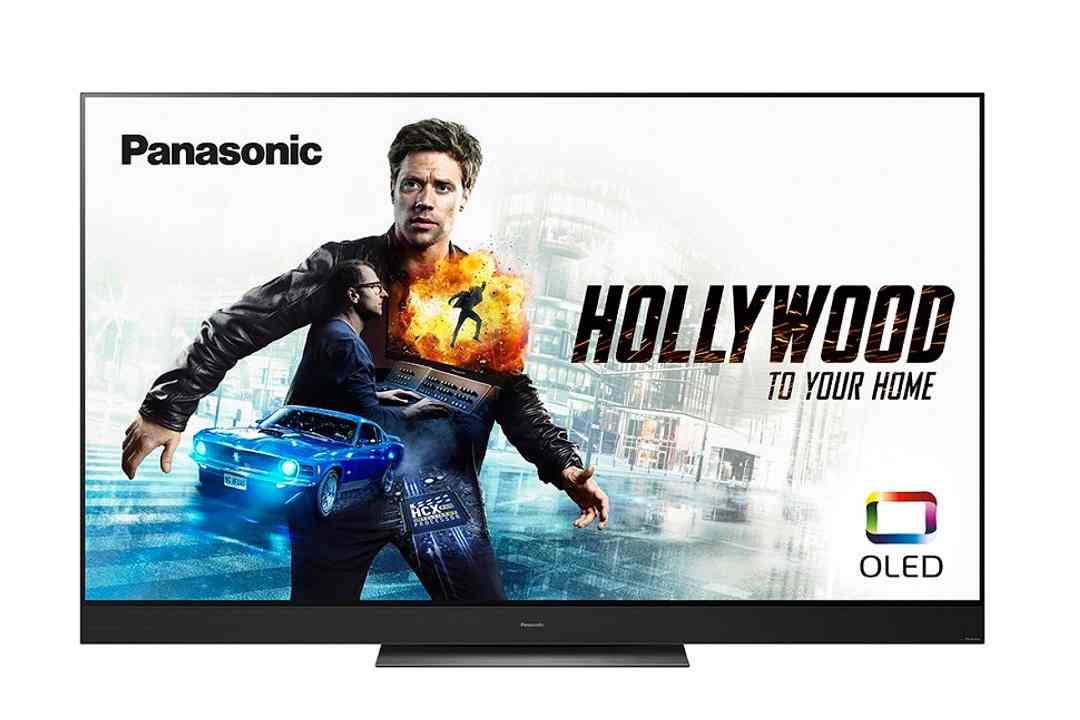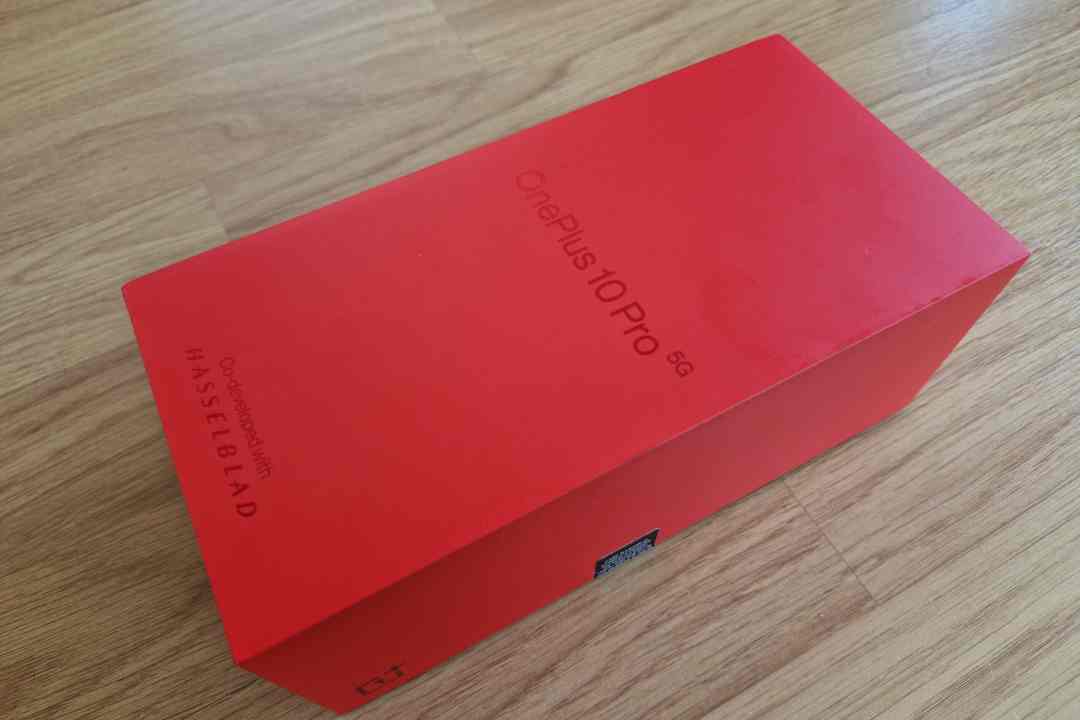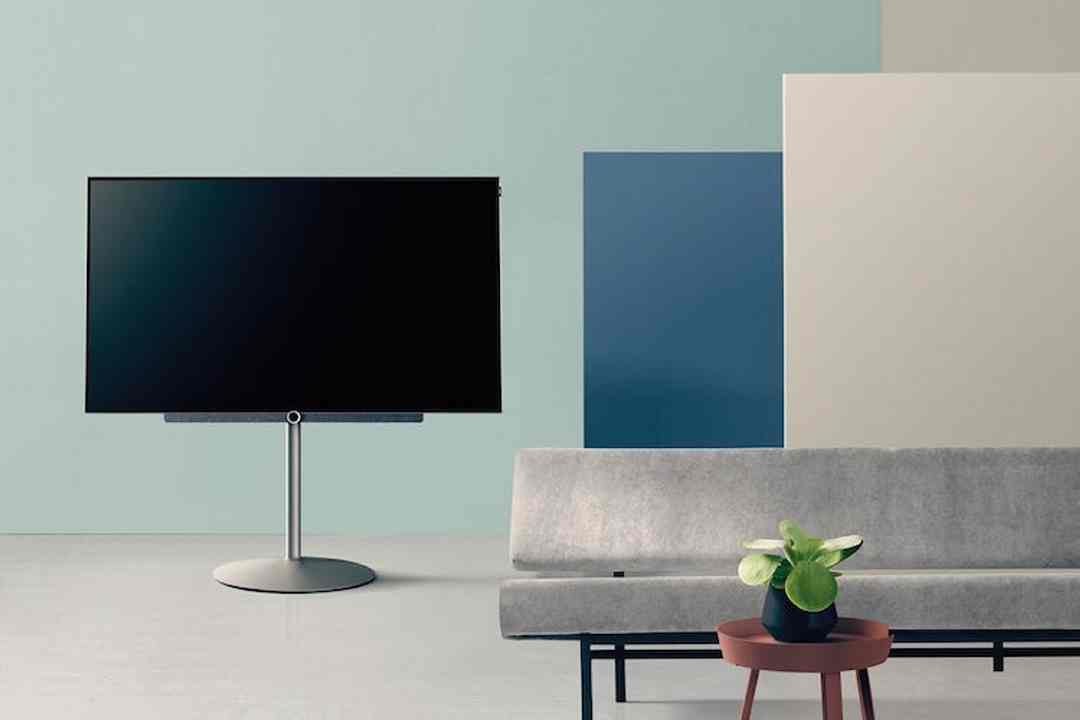
A beautifully designed TV that delivers excellent picture and sound quality
Pros
- Gorgeous design and build quality
- Vibrant, contrast-rich picture quality
- Superior sound quality for a flat TV
Cons
- Some colour banding with HDR
- No dedicated Netflix app, Amazon doesn’t support HDR
- Slightly high input lag for gaming
Key Specifications
- Review Price: £2999
- 65-inch OLED TV with native 4K resolution
- HDR10, HLG and Dolby Vision HDR support
- Image+ video processing system
- Multimedia playback via Wi-Fi, Bluetooth and USB
- MIMI Defined age-dependent sound adjustment
What is the Loewe Bild 3.65?
The Loewe Bild 3.65 is the entry-level 65-inch OLED model from the luxury German brand’s latest TV range.
It’s slightly more expensive at £2999 than some 65-inch OLED TV rivals. However, its premium design, powerful sound system and vibrant pictures ensure it still ends up appearing decent value.
Loewe Bild 3.65 – Design and build quality
The Loewe Bild 3.65 is a gorgeous thing. From the front, its combination of a lean-back screen, barely there frame, and ultra-heavy-duty metal desktop stand creates a beautifully elegant and distinctive feel. Even the soundbar hanging from the rear of the bottom edge looks elegant rather than awkward.
You also get a cute clip-on Loewe ‘”flag” that attaches to the TV’s upper-right edge, and the brand’s trademark metal-enclosed circular LED receiver sits boldly at the centre of the bottom edge.
The screen is incredibly thin at its edges, and this thinness extends to around a quarter of its rear side. The thinnest section of the rear is emphasised and strengthened beautifully, too, by a gleaming metallic finish.
To seal the beautifully minimalistic deal, detachable magnetic covers help hide much of the potential cable spaghetti. The build quality throughout is outstanding. The metal desktop stand is one of the heaviest I’ve ever had to handle, plus you can expect the same sort of quality with the various other mounting “furniture” options Loewe provides for this set.
The metallic section on the rear feels like bullets would bounce off it. The screen can be rotated round on its stand neck, too, and everything gleams with a polish and opulence that belies its £2999 price. Until you clap eyes on Loewe’s even more opulent step-up models!
The Bild 3.65 ships with a “classic” Loewe remote. It’s big, heavy and beautifully made, but also pretty non-conforming with its button layout. This, together with the fact that some commonly used buttons are tiny, means it takes longer than usual to learn your way round. But you will get there in the end.
Loewe Bild 3.65 – Features
The Loewe Bild 3.65 is a 65-inch 4K TV using OLED panel technology. With OLED screens, each pixel produces its own light and colour, independent of even its nearest neighbours. This generally leads to class-leading contrast and consistently pure colours.
The Bild 3.65 supports three types of high dynamic range content: HDR10, Dolby Vision and HLG. The first of these is essentially the industry standard form of HDR. Dolby Vision is a premium format that adds, among other things, extra scene-by-scene information that TVs can use to optimise their picture performance. HLG is the new HDR format preferred by broadcasters, and currently deployed on the BBC iPlayer.
Related: What is Dolby Vision HDR?
The Bild 3.65’s smart features come courtesy of Loewe’s own in-house effort, and for the most part this works very well. Particularly likeable is the way the homescreen treats any type of source –TV channel, app, external source, USB drive, even Web pages – on an equal footing. Each gets its own icon, and it’s exceptionally easy to change the running order of these icons to suit your tastes. You can thus straightforwardly create a favourites list that incorporates all of your different source options.
There’s support for Amazon Alexa voice control, and the Bild 3.65 initially looks to offer access to key video streaming services, too. Netflix, Amazon Prime, Youtube and all the UK’s main catch-up TV platforms are there, with the latter available within a Freeview Play ‘wrapper’. This means you can search and access their content via a beautifully presented electronic programme guide.
Closer investigation of the Bild 3.65’s smart features uncovers one or two issues, though. First and worst, choosing Netflix only takes you to Netflix’s online website. There’s no dedicated TV app. This means you have to navigate pages by tediously moving an on-screen cursor around.
Sadly, it also means that Netflix can’t tell that your TV supports HDR and 4K, so you only get served HD content at best.
Related: Amazon Alexa Guide – Features, entertainment, smart home and more
The Loewe Bild 3.65 does at least carry a proper TV app version of Amazon’s video platform. But at the time of writing this only supports 4K, not HDR. Similarly, while the YouTube app supports 4K/VP9, I couldn’t get it to play HDR.
Loewe is a relatively small brand versus the likes of LG and Samsung, so it isn’t surprising that it struggles to get attention from the likes of Netflix and Google. However, there’s just no denying that the vast majority of TVs offer a more comprehensive online video experience.
Loewe is on stronger ground by far with its audio features. Despite its relatively small size, the soundbar attached to the bottom edge pumps out 2 x 40W (MPO) from its forward-firing main drivers, raising the prospect of a more aggressive, direct sound.
The Bild 3.65 also carries a useful feature not yet supported, so far as I know, by any other brand: MIMI Defined. This adjusts the sound based on your age. When I first received the TV, adjustments could only be based on your date of birth. Just as I was sending the unit back, however, the set became compatible with MIMI’s app, which runs a six-minute hearing test to determine a much more accurate sense of your hearing capabilities.
The system works surprisingly well, clearly adjusting its sound to suit the hearing potential of different individuals in your household. And we’re not just talking about making everything louder for old folk. The whole tone and balance of the various elements of the sound mix are adjusted to help everyone get the best experience for their particular ears. You can adjust MIMI Defined’s intensity, too, if you feel like it’s going too far with any particular content.
Related: Best soundbars
You can even establish group settings that try to create the best all-round sound for a room full of previously measured individuals. The only catch with the MIMI system is that it can’t automatically tell who is watching the TV. You have to remember to tell the system who you are.
There’s one further highly unusual feature you can add to the Bild 3.65 for £199, if you wish: a built-in “DR+” 1TB hard drive, for recording from the Freeview HD tuner.
The Bild 3.65’s connectivity is okay. It has all the ports you’d expect: four HDMIs, an RF input and three USBs. Plus it supports Bluetooth, Wi-Fi and Loewe Link. However, only one of the HDMIs is a 2.0a affair able to support the full 4K HDR at 60Hz bandwidth.
Loewe Bild 3.65 – Setup
Loewe has done a good job of making the Bild 3.65 a great watch right out of the box. Its picture presets, no matter what type of source you’re watching, are thoughtful and effective. There are still a few tips worth bearing in mind, though.
First, I’d recommend the Film Dark setting with HDR material unless your room is super-bright. I’d suggest nudging the brightness up one notch to its 11 level, too. Don’t go any higher, though, or the screen’s otherwise lovely black levels nosedive.
Make sure the digital noise reduction (DNR) is off, especially with native 4K sources. Handle the “DMM” motion processing with care, too – it shouldn’t be set higher than its “Soft” option (which here actually means gentle); some may find they prefer to turn it off completely.
You should experiment with the Image+ processing system. My suspicion is that most people will prefer the Normal setting that boosts contrast, colour and sharpness, and creates a more three-dimensional effect. Leaving Image+ off gives you a picture that’s ostensibly closer to the native design of your source material, but actually looks a little flat. Unusually for an OLED TV, the Bild 3.65 doesn’t provide a full suite of calibration tools to tackle this.
One last point to add here is that while the Bild 3.65 is much easier to use than many previous Loewe TV generations, there are a few quirky menu choices. Including, most notably, the way you have to find and manually turn off HDMI “Compatible Mode” in the connection menus to enable HDR playback over HDMI.
Related: OLED vs QLED
Loewe Bild 3.65 – Performance
Despite not carrying the granular levels of calibration that hardcore AV fans might be looking for, the Bild 3.65 delivers a hugely watchable and engaging picture.
Particularly impressive is how bright and vibrant images look. High dynamic range content appears punchy and dynamic by OLED standards, with Loewe seemingly content to allow its screen to settle on a much higher baseline level of brightness than Sony’s OLED TVs, and a slightly higher baseline brightness level than LG and Panasonic’s current OLEDs.
This really sells the difference between SDR and HDR, and helps the wide colour gamuts you get with most HDR content look exceptionally spectacular. Especially if you’re using the Active+ system on its Normal setting.
However, the Loewe Bild 3.65 doesn’t hit quite such bright peaks in relatively small areas with HDR sources as the latest OLEDs from LG and Panasonic. It measures around 700 nits on a 10% (of the screen) white HDR window, versus as much as 800 nits on 2018 LG OLED models. But peak HDR highlights still look reasonably convincing, and don’t suffer badly with clipping (lost shading detail).
Loewe’s approach arguably doesn’t track the full dark-to-bright dynamics of HDR’s expanded light range as carefully as LG and Panasonic OLED models. When it comes to HDR, though, you’re always dealing with compromises of some sort. Personally, I think Loewe’s bright-focused approach delivers extremely watchable results.
This is especially true when you consider that the brightness and rich colours certainly don’t compromise the stellar black levels for which OLED technology is justly famed. On the contrary, the Bild 3.65’s black levels are at least as deep and rich as those of any of its OLED rivals. And in their depth, consistency and richness, they routinely underline the brightness available elsewhere in the image. The result is some of the most beautiful handling of dark scenes I’ve seen.
Some top-tier LCD TVs can get significantly brighter than any OLED TV, of course. However, HDR is as much about darkness as it is brightness, and nobody can deny that the Bild 3.65 delivers an impressive HDR performance.
The Loewe Bild 3.65’s pictures aren’t the most crisp or sharp around, but 4K pictures still look 4K, and Loewe’s processing is now adept at upscaling HD to the screen’s native 4K pixel count.
The set handles standard dynamic range images super-elegantly and immersively too, and it’s always worth mentioning in any OLED review that its colour and contrast remain essentially immaculate from pretty much any viewing angle.
While the Bild 3.65’s pictures look lovely for the vast majority most of the time, there are a trio of issues that occasionally try to spoil the party. One is pretty noticeable striping over areas of HDR pictures that contain subtle colour blends, especially skies. The scene on the eve of the parting of the Red Sea in Exodus: God And Kings, for instance, shows really distinct blue bands in the dusk sky.
Problem two is motion. Without any motion processing active, camera pans – especially slow ones – can look distractingly juddery. But there’s no setting of the “DMM” motion processor that can reduce the judder without making the picture look a little too processed and over-smoothed.
Finally, while the Bild 3.65’s target audience probably isn’t into gaming, it’s still a shame that the set takes around 65ms to render received image data. That’s even when you’re using its Game mode.
Related: What is 4K TV and Ultra HD?
The Loewe Bild 3.65 moves firmly back into positive territory with its audio. There’s enough power and direct attack to fill a large room, and the dynamic range extends far beyond that of the vast majority of other TV sound systems.
Bass is reasonably deep, consistently convincing and always well timed, while treble detailing is rich and free of harshness. There’s plenty of genuine ebb and flow in the sound’s scale during action scenes, too, and even the loudest moments sound clean and expansive, with no distortions or compression.
There’s a good sense of scale to the soundstage, and the MIMI Defined feature really does make a difference – if you remember to use it. Finally, the speakers prove as capable with music as they are with movies, with excellent timing, good balance, plenty of dynamic range, and rich vocals.
My only complaint about the sound is that if you don’t use the Custom Film Sound mode when watching films, voices can sound as if they’re emerging from below the picture.
Why buy a Loewe Bild 3.65?
It isn’t the cheapest OLED TV, and it doesn’t offer the in-depth picture calibration features some AV enthusiasts will be looking for. It’s also a bit off the pace where video streaming apps are concerned, and its input lag is slightly high for gamers.
However, this TV is beautifully designed and built, even by OLED’s naturally high standards. Its picture quality is also excellent most of the time, and those endlessly watchable images are accompanied by an unusually potent sound system.
The ability to add a built-in hard drive recorder is a great feature, too.
Philips’ 903 series of OLED TVs deliver sharper, more extreme pictures and similarly potent sound for around the same money, but are complicated to use. LG’s OLED65C8 offers greater picture control and much less input lag for a couple of hundred pounds less, but isn’t as attractively designed and doesn’t sound as good.
Verdict
The Bild 3.65 isn’t blemish-free, especially when it comes to built-in streaming support. Its lovely design, superior sound and vivid, contrast-rich pictures ensure that it brings enough quality and originality to the table to stand out from the ever-growing OLED crowd.
How we test televisions
We test every TV we review thoroughly over an extended period of time. We use industry standard tests to compare features properly. We’ll always tell you what we find. We never, ever, accept money to review a product.
Find out more about how we test in our ethics policy.
Used as the main TV for the review period
Tested for more than a week
Tested using industry calibrated tools, discs and with real world use
Tested with broadcast content (HD/SD), video streams and demo discs
Trusted Score
Score in detail
- Features 8
- Value 8
- Smart TV 6
- Image Quality 9
- Design 9
- Sound Quality 9
Features
| Size (Inch) | 65 |
| Display Type | OLED |
| Max. Resolution | 3840 x 2160 |
| Full HD 1080p | Yes (actually 4K) |
| Digital Tuner | Yes |
| Freeview HD | Yes |
| Freesat HD | No |
| 3D Ready | No |
| Refresh Rate (Hertz) | 100 (native) |
Connectivity
| HDMI | 4 |
| Component | 1 |
| Digital Audio Out | 1 (optical) |
| Headphone | Yes |
| Ethernet | Yes |
| WiFi | Yes (built in) |
Physical Specifications
| Height (Millimeter) | 863 |
| Width (Millimeter) | 1449 |
| Depth (Millimeter) | 67 |
| Weight (Gram) | 30600 |


